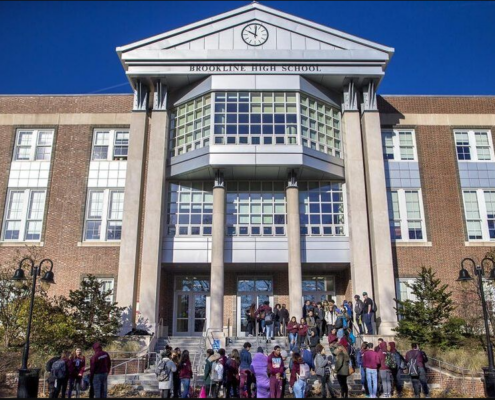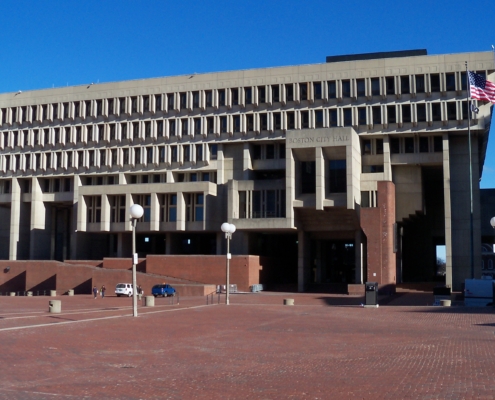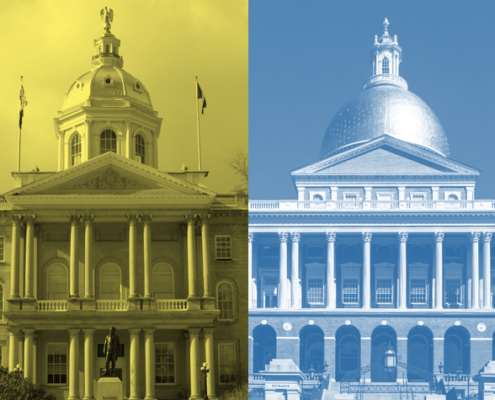Did Justice Prevail? Questions Surrounding Correctional Officers and Budgetary Allocation within the Suffolk County Sheriff Department and Others
According to MassOpenBooks 2018 statistics, the Suffolk County Sheriff’s Department is the 18th highest department by average pay of all employees from 126 departments listed (excluding authorities) in the state. It has 1,135 employees who earn a total of $85,059,220.
While the total number of employees decreased from 1,138 in 2012 to 1,135 in 2018, the number of “correctional officers” from South Bay House of Correction increased from 391 in 2012 to 441 in 2018. In six years, the average pay of correctional officers increased 76 percent, from $18,084 in 2012 to $75,296 in 2018, while total pay in the entire department increased 15 percent over the same period, from $71,939,046 to $85,059,220.
Similarly, the number of “jail officers” from Nashua Street Jail increased from 195 in 2012 to 243 in 2018. In those six years, the average pay of jail officers increased 74 percent, from $17,036 to $65,455, while, as previously mentioned, total departmental pay increased 15 percent.
According to an article from WBUR, “Massachusetts … had the fifth-largest decline in prison populations between 2017 and 2018…” Specifically, according to the most recent statistics from the Massachusetts Department of Correction, Suffolk County experienced a drop in the prison population from 1,536 to 1,357 between January 29, 2018 and December 31, 2018. It also experienced a similar drop in the prison population the previous year, from 1,631 to 1,598 from January 30th to December 25th. So why would the number of jail officers and corrections officers rise?
The chart below shows that sheriffs make more than just their base pay.
| SHERIFF DEPARTMENT | NAME OF SHERIFF | SHERIFF’S BASE PAY IN 2018 | SHERIFF’S OTHER PAY IN 2018 |
| Barnstable | James Cummings | $151,709 | $10,465 |
| Berkshire | Thomas Bowler | $151,709 | $0 |
| Bristol | Thomas Hodgson | $151,709 | $0 |
| Dukes | Robert Ogden | $119,771 | $0 |
| Essex | Kevin Coppinger | $151,709 | $0 |
| Franklin | Christopher Donelan | $151,709 | $6,950 |
| Hampden | Nicholas Cocchi | $151,709 | $3,800 |
| Hampshire | Patrick Cahillane | $151,709 | $0 |
| Middlesex | Peter Koutoujian | $151,709 | $0 |
| Nantucket | James Perelman | $95,816 | $3,465 |
| Norfolk | Michael Bellotti | $128,369 | $0 |
| Plymouth | Joseph Mcdonald | $152,876 | $0 |
| Suffolk | Steven Tompkins | $151,709 | $728 |
| Worcester | Lewis Evangelidis | $151,709 | $0 |
SOURCE: MassOpenBooks
The only information received regarding “other pay” from sheriffs is from Sheriff Cummings, Sheriff Donelan, and Sheriff Perelman. On a telephone call, Sheriff Cummings explained that the other pay was carried over from pay that was approved by the county. In a public records request, it was revealed that Sheriff Donelan received a $2,500 education bonus, a $2,200 longevity bonus, a $750 bonus from 2017 Professional Development Incentive Year, and a $1,250 bonus from Professional Development Inc. On another telephone call, Sheriff Perelman’s office explained that his other pay came from detailed work on the 4th of July along with a 2% bonus from the base pay that is given every five years.
According to a Boston Globe article, “the state’s politically powerful sheriffs could score major salary increases under a House-passed proposal that … would push the majority of the 14 sheriffs’ pay to nearly $170,000 a year in July 2019.” The article further mentions that Middlesex County Sheriff Peter Koutoujian made the budget increase request to his successor as state representative. Koutoujian was quoted saying sheriffs had not gotten a raise in the last five years. According to the author of the article, the conference committee is still negotiating the final version of the budget and it may not be known for a few weeks if the sheriff pay raise amendment will be included in the final version.
The lack of clarity regarding why the Suffolk County Sheriff’s Department has hired more correctional and jail officers as the number of inmates has decreased is concerning, as is the lack of transparency regarding what “other pay” is for all sheriffs throughout the Commonwealth. There is also the possibility that “other pay” could increase if the sheriffs get their raises. Hopefully, these problems can be addressed soon.
Paige Anderson is a Government Transparency Intern at The Pioneer Institute. She is a rising senior at Wellesley College majoring in Economics.
Get our MassWatch updates!
Read More of Pioneer’s Government Transparency Commentary:





















